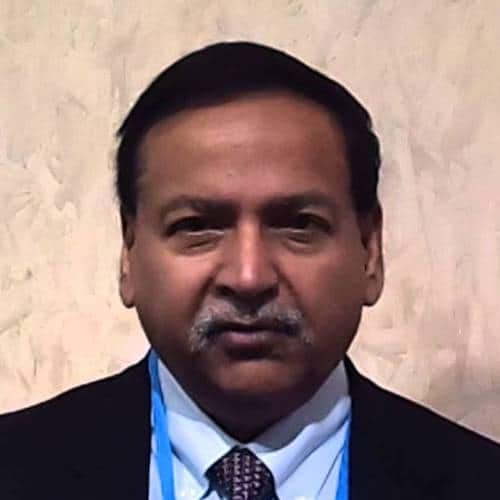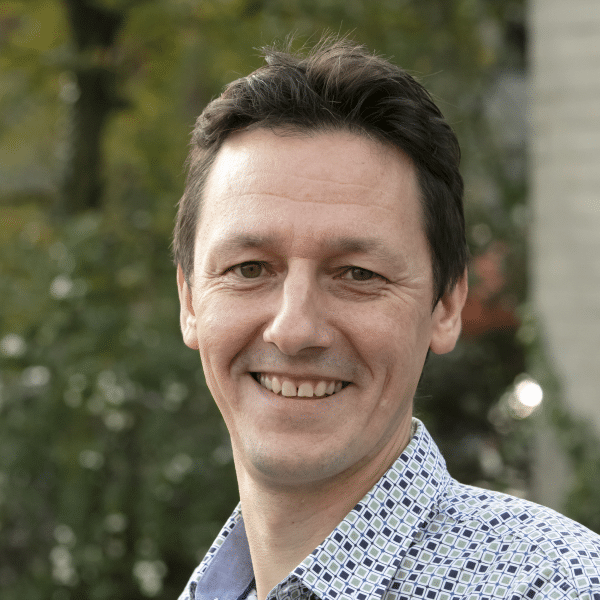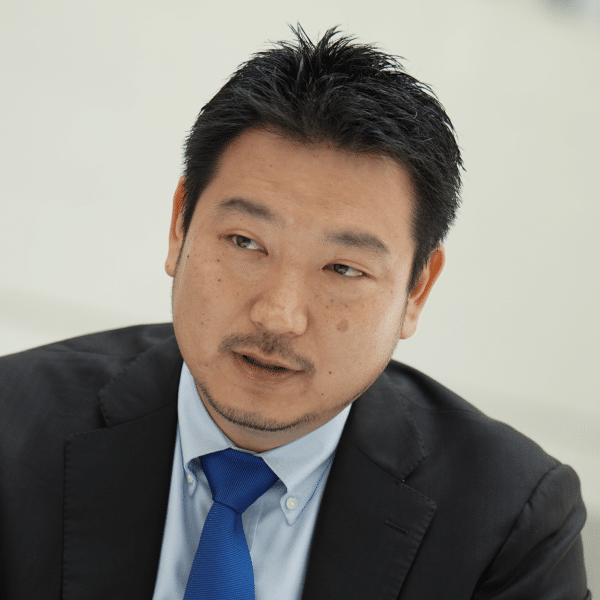Challenges & opportunities
Accelerating climate change mitigation and adaptation
The Intergovernmental Panel on Climate Change (IPCC) estimates that human activities have caused 1.0°C of global warming above pre-industrial levels so far. Global warming is likely to reach 1.5°C between 2030 and 2052, if human-caused climate change continues to increase at the current rate.
As greenhouse gas emissions rise, droughts, floods, heat waves, extreme weather events and sea-level rise are felt worldwide at rates much faster than anticipated. This has a strong impact on many coastal countries, especially the least developed countries and the small islands developing states. More frequent and intense natural disasters are threatening natural ecosystems and expose humanity to water security, food security and health risks.
During the thematic opening session and deep dive sessions, we will explore the challenges and enabling environments to accelerate climate change mitigation and adaptation. We will look into governance, economic measures and financing for the implementation of adaptation options for the achievement of SDGs. Our speakers will share best practices as well as lessons learned.
Conference programme
Climate sessions
Watch our conference sessions. Sessions labeled were live-streamed from our studios in Brussels.
-
THEMATIC OPENING SESSIONAccelerating climate change adaptation: a human, environmental, and economic imperative09:30 - 11:00
-
DEEP DIVE SESSIONSector-oriented climate services11:30 - 13:00
-
SPECIAL SESSIONCO2 capture: from postponed, cyclic to zero emissions economics and opportunities17:30 - 18:30
Climate
Deep dive session
Sector-oriented climate services
26/10/2020, 11:30 - 13:00
Just like the weather service brings a daily forecast enabling people to plan activities, climate services concern medium to long term projections of climate-related indicators. By providing tailored and understandable climate information, climate services can be fundamental to assist decision-making, be it for farmers with forecasts of drought, tendencies in temperature for urban planning or weather extremes for disaster management. In this deep dive, the need for climate services at various levels of decision-making will be highlighted and discussed by several renowned speakers.
Chaired by

Raf Theunissen
VITO
Program Manager Land Use and Climate Impacts (LUCI) team
Raf Theunissen is part of the management team at VITO’s department of Environmental Modelling. Since April 2019, he is program manager of VITO’s dynamic Land Use and Climate Impacts team. This team consists of 15 experts in climate, land use modelling and system dynamic modelling for which Raf provides support in project supervision and financial management.
Raf Theunissen holds a degree in aerospace engineering with a specialisation (a Master after Master degree at the Von Karman Institute and a PhD at VKI, TU Delft and VUB) in optical flow measurements. He is internationally recognised for his expertise in Particle Image Velocimetry algorithms.
Before joining VITO, Raf was a senior lecturer in experimental aerodynamics at the University of Bristol (2010-2019). Besides lecturing, he was tasked with PhD supervision and research in adaptive algorithms to advance optical measurement techniques.
Investing in Climate Services: World Bank’s experience
Hydrological and meteorological (or “hydromet”) hazards are responsible for 90% of total disaster losses worldwide. According to the World Bank report “Unbreakable”, average annual losses reach close to 520 billion US dollars a year. The impacts of extreme natural disasters force some 26 million people into poverty every year.
In response to increased demands for quality hydromet services in developing and emerging countries to mitigate climate risks, the World Bank has been providing financial, technical and advisory support to national governments to modernise and manage the hydromet value chain needed to collect data, develop forecasts, and deliver the services to the public and to risk managers.
The World Bank’s portfolio for the hydromet sector has more than tripled over the last 10 years, now almost reaching a total of 1 billion US dollars in more than 60 countries. The lending operations and technical assistance by the World Bank have resulted in extensive experience and lessons learned and have revealed a number of emerging issues to consider, including public private engagements and partnerships with development partners.

Makoto Suwa
The World Bank
Senior Disaster Risk Management Specialist
Makoto Suwa is a Senior Disaster Risk Management Specialist at the World Bank. He leads and supports a wide range of World Bank activities and projects that aim to strengthen weather, climate, and hydrological services in Africa. Prior to joining the World Bank, Makoto worked for the World Meteorological Organization, at both its headquarters in Geneva and its Regional Office for Eastern and Southern Africa in Nairobi. He also taught at Kigali Institute of Science and Technology and Lycée de Kigali in Rwanda, and briefly worked for JICA’s Office for Climate Change in Tokyo. Makoto holds a PhD in geosciences (climate science) from Princeton University and a master of environmental management degree from Duke University.
The need for Climate Services in Africa, with applications to agriculture
Climate variability and change is impacting development sectors in Africa with clear effects on the agriculture and food security sector. Crop yields, food production, prices in commodity markets and arable land are exposed to climate change. Disruptions on the onset and withdrawal of the rainy seasons, wet and dry spells during the season, heavy rains and floods during the harvesting period, droughts and floods, strong winds are well known climate hazards impacting food security, soil fertility, water availability, inflation on commodity markets, reduction of crop yields and food production, increase of food imports. Due to unusually heavy and/or widespread rain over locust development areas, outbreaks occur almost every year.
Climate services are required to reduce negative impacts, benefit from possible opportunities and build resilience in highly vulnerable areas (mostly arid and semi-arid lands in Africa). Climate projections are analysed to estimate future climate scenarios and support adaptation of agriculture calendars, seasonal climate forecasts are essential to guide updates of agriculture calendars required ahead on the upcoming rainy season to reduce climate impacts on food systems.
VITO and ACMAD, the African Centre of Meteorological Application for Development, are collaborating to provide an online tool called AGRACLIM for the generation and communication of climate services to build resilience of the agriculture sector. Training for Meteorological services, agriculture extension services, farmer federations, planners and decision makers of the agriculture and food sector is being organized to pilot and upscale provision of climate services for smart agriculture across Africa.

André Kamga Foamouhoue
ACMAD, the African Centre of Meteorological Application for Development
Director General
André Kamga Foamouhoue is the Director General of the African Centre of Meteorological Applications for Development. Prior to joining his current position, he was Chief of Climate and Environment Department of ACMAD. He is also a member of the American Meteorological Society as well as the WMO International Coordination Team for the Climate Service Information System of the Global Framework for Climate Services (GFCS).
André’s career has taken him to NOAA/NCEP Climate Prediction Center as a visiting scientist at the African Desk, the UK Met Office Hadley Centre for Regional Climate Modeling with PRECIS, the WMO as Scientific Officer at the Climate Prediction and Adaption Branch of the Climate and Water Department, the European Centre for Medium Range Weather Forecast as the EU-funded African Monsoon Multidisciplinary Analysis (AMMA) project Work Package Leader.
André Kamga Foamouhoue was a co-chair of the WMO’s World Weather Research Programme /THORPEX Africa Regional Committee and spearheaded the development by a task force of the THORPEX Africa science and implementation plans. He is well known in the meteorological community for his key role in the demonstration phase leading to the designation in 2015 of ACMAD as a full-fledged multifunctional WMO Regional Climate Centre (RCC) for all Africa, the first WMO designated RCC in Africa.
Event attribution of extreme event: producing high-resolution data and climate modeling
This year, series of extreme events – Siberian heatwave and wildfire, torrential rain storms over East Asia, and Californian wildfire – have been reported. Understanding a particular extreme event is challenging such as identifying roles played by different weather and climate factors and even simulation of such events using climate model. Here we are presenting two case studies: production of high-resolution climate data using deep neural network method and event attribution study on the cyclone Fani. In the first example,
we apply various machine learning algorithms that are widely used in the super-resolution image process to produce high-resolution fire risk information based on Fire Weather Index (FWI) derived from the Canadian forest fire danger rating system. Our result indicates that overall performance is similar with high-resolution RCM based product but much higher efficiency. Also, it is difficult to achieve the same result in traditional statistical downscaling approach due to complexity in producing FWI. In the second example, we demonstrate relative importance of regional warming and anthropogenic aerosol effects on the Cyclone Fani.

Jin Ho Yoon
School of Earth Sciences and Environmental Engineering - Gwangju Institute of Science and Technology
Professor
Jin-Ho Yoon currently works as an Associate Professor at the School of Earth Sciences and Environmental Engineering, Gwangju Institute of Science and Technology. Jin-Ho leads the “Climate Analysis and Modelling” lab focusing on climate extremes, climate variability, climate change and climate modelling.
Professor Jin-Ho Yoon has been teaching and researching climate change and climate modelling since he joined GIST in March of 2016. Prior to that, he worked on climate change and climate modelling from 2010 to 2016 at the PNNL Pacific Northwest National Laboratory (US Department of Energy). Professor Jin-Ho Yoon was selected as the lead author of the 6th Assessment Report for the Intergovernmental Panel on Climate Change (IPCC).
Climate Service in practice: what does a Climate Service look like?
Filip Lefebre will present the activities of the VITO Urban Climate Service Center that is specialized in the delivery of data, tools and services to support cities and towns in their ambition to become more climate resilient with a particular focus on heat related issues. The presentation will include a presentation of the UrbClim urban climate model and how the model results are used for multi-sectoral urban adaptation activities. Tangible results will be shown from the H2020 Climate-fit.city project, the C3S European Health project as well as from contract work for administrations and other stakeholders from different policy levels.

Filip Lefebre
VITO
Urban climate service manager
Filip Lefebre works as a business developer and project manager in the Climate Service team of VITO’s Environmental Modelling business unit. This team delivers innovative, sustainable and scientifically sound products and services to better manage, predict and control our shared natural resources (air, water, land, soil, eco-systems) based on computer modelling and information technology. He holds a PhD in Physics on regional climate modelling of the Greenland ice sheet (2001) from the Catholic University of Louvain.
VITO’s Climate Service team is specialised in the processing of past, present and future climate data into information and services inside a customer-oriented organisation. The service team’s expertise covers urban climate services as well as climate-health, biodiversity, and agriculture services.
Panel discussion and Q&A – Climate Service in practice

Makoto Suwa
The World Bank
Senior Disaster Risk Management Specialist
Makoto Suwa is a Senior Disaster Risk Management Specialist at the World Bank. He leads and supports a wide range of World Bank activities and projects that aim to strengthen weather, climate, and hydrological services in Africa. Prior to joining the World Bank, Makoto worked for the World Meteorological Organization, at both its headquarters in Geneva and its Regional Office for Eastern and Southern Africa in Nairobi. He also taught at Kigali Institute of Science and Technology and Lycée de Kigali in Rwanda, and briefly worked for JICA’s Office for Climate Change in Tokyo. Makoto holds a PhD in geosciences (climate science) from Princeton University and a master of environmental management degree from Duke University.

André Kamga Foamouhoue
ACMAD, the African Centre of Meteorological Application for Development
Director General
André Kamga Foamouhoue is the Director General of the African Centre of Meteorological Applications for Development. Prior to joining his current position, he was Chief of Climate and Environment Department of ACMAD. He is also a member of the American Meteorological Society as well as the WMO International Coordination Team for the Climate Service Information System of the Global Framework for Climate Services (GFCS).
André’s career has taken him to NOAA/NCEP Climate Prediction Center as a visiting scientist at the African Desk, the UK Met Office Hadley Centre for Regional Climate Modeling with PRECIS, the WMO as Scientific Officer at the Climate Prediction and Adaption Branch of the Climate and Water Department, the European Centre for Medium Range Weather Forecast as the EU-funded African Monsoon Multidisciplinary Analysis (AMMA) project Work Package Leader.
André Kamga Foamouhoue was a co-chair of the WMO’s World Weather Research Programme /THORPEX Africa Regional Committee and spearheaded the development by a task force of the THORPEX Africa science and implementation plans. He is well known in the meteorological community for his key role in the demonstration phase leading to the designation in 2015 of ACMAD as a full-fledged multifunctional WMO Regional Climate Centre (RCC) for all Africa, the first WMO designated RCC in Africa.

Filip Lefebre
VITO
Urban climate service manager
Filip Lefebre works as a business developer and project manager in the Climate Service team of VITO’s Environmental Modelling business unit. This team delivers innovative, sustainable and scientifically sound products and services to better manage, predict and control our shared natural resources (air, water, land, soil, eco-systems) based on computer modelling and information technology. He holds a PhD in Physics on regional climate modelling of the Greenland ice sheet (2001) from the Catholic University of Louvain.
VITO’s Climate Service team is specialised in the processing of past, present and future climate data into information and services inside a customer-oriented organisation. The service team’s expertise covers urban climate services as well as climate-health, biodiversity, and agriculture services.

Jin Ho Yoon
School of Earth Sciences and Environmental Engineering - Gwangju Institute of Science and Technology
Professor
Jin-Ho Yoon currently works as an Associate Professor at the School of Earth Sciences and Environmental Engineering, Gwangju Institute of Science and Technology. Jin-Ho leads the “Climate Analysis and Modelling” lab focusing on climate extremes, climate variability, climate change and climate modelling.
Professor Jin-Ho Yoon has been teaching and researching climate change and climate modelling since he joined GIST in March of 2016. Prior to that, he worked on climate change and climate modelling from 2010 to 2016 at the PNNL Pacific Northwest National Laboratory (US Department of Energy). Professor Jin-Ho Yoon was selected as the lead author of the 6th Assessment Report for the Intergovernmental Panel on Climate Change (IPCC).

Raf Theunissen
VITO
Program Manager Land Use and Climate Impacts (LUCI) team
Raf Theunissen is part of the management team at VITO’s department of Environmental Modelling. Since April 2019, he is program manager of VITO’s dynamic Land Use and Climate Impacts team. This team consists of 15 experts in climate, land use modelling and system dynamic modelling for which Raf provides support in project supervision and financial management.
Raf Theunissen holds a degree in aerospace engineering with a specialisation (a Master after Master degree at the Von Karman Institute and a PhD at VKI, TU Delft and VUB) in optical flow measurements. He is internationally recognised for his expertise in Particle Image Velocimetry algorithms.
Before joining VITO, Raf was a senior lecturer in experimental aerodynamics at the University of Bristol (2010-2019). Besides lecturing, he was tasked with PhD supervision and research in adaptive algorithms to advance optical measurement techniques.
Climate
Thematic session
Accelerating climate change adaptation: a human, environmental, and economic imperative
26/10/2020, 09:30 - 11:00
Given the multiple benefits that climate adaptation actions can bring, accelerating climate change adaptation is becoming imperative.
The Adapt Now! report by the Global Commission on Adaptation confirms that the return on investments in improved climate resilience is very high. Global investments worth 1.8 trillion USD could even generate 7.1 trillion USD in total net benefits from 2020 to 2030, making the adoption of climate adaptation strategies a necessity from a purely economic point of view. By enhancing the resilience of society against future risks, climate adaptation strategies will also deliver significant social and environmental benefits next to these economic gains.
During the thematic opening session, a panel of experts will discuss in a live setting in Brussels with public attending how to accelerate and upscale climate adaptation actions and related policies. This panel will be complemented with online presentations from practitioners across the globe who will present concrete case studies in which technological innovation is instrumental in deploying adaptation measures at scale.
Chaired by

Sylviane Bilgischer
Cabinet of Minister Borsus (Walloon Region)
Member of Adaptation Fund (UNFCCC) and Advisor to the Minister (Circular Economy, Innovation, Energy and Climate)
Sylviane Bilgischer has several years of experience in the climate change field. Since October 2017, she has served as Climate Policy Advisor for the Walloon Regional Government’s Ministry of Budget, Finances, Energy, Climate and Airports. From 2016-2017, she worked as a climate and carbon market advisor at the Walloon Air and Climate Agency on climate finance, fluorinated greenhouse gases and the European Union emissions trading scheme (ETS, which is a pillar of EU climate policy). She has further provided policy advice on climate change, playing an active role as a national Belgian delegate to the UN Framework Convention on Climate Change (UNFCCC) in its international meetings. She has also served as a Technical Advisor at the EUROCLIMA Programme of the European Commission. Between 2010 and 2015, Sylviane has worked for the United Nations Development Programme (UNDP) in Peru as a Disaster Risk Reduction and Climate Change Officer.
Accelerating the Transition to a Climate-prepared and Resilient Europe
Jean-Pascal van Ypersele will present the highlights of the 2020 interim report of the European Commission Mission Board for Adaptation to Climate Change, including Societal Transformation.

Jean-Pascal van Ypersele
UCLouvain
Professor of climatology and sustainable development sciences
Jean-Pascal van Ypersele de Strihou is a Belgian academic climatologist. He is a professor of Climatology and Sustainable Development sciences at the Université Catholique de Louvain (Louvain-la-Neuve, Belgium). As a former IPCC vice-chair, he is one of the forerunners of climate change mitigation through a strong decrease in fossil fuel consumption.
Jean-Pascal van Ypersele de Strihou has participated in most UN conferences on climate issues since 1979. He has been instrumental in creating in 2002 the UN Work Programme on Climate Communication and Education and holds numerous awards in science and science communication. He has been appointed by the UN Secretary-General member of the group of scientists in charge of the 2019 Global Sustainable Development Report.
Ecosystem-based approaches to adaptation and nature-based solutions
Luc Bas will focus on the precarious status of the natural world and the measures needed to safeguard this. Based on this global concern, he will give his view on ecosystem-based approaches to adaptation and nature-based solutions that can be considered as innovative pathways for developing and implementing new adaptation technologies. He will illustrate this with examples from the practice of climate change adaptation actions.

Luc Bas
IUCN
Director Europe
Luc Bas is the Director of the IUCN European Regional Office in Brussels. He represents IUCN towards the EU Institutions and provides leadership and guidance for all activities undertaken by IUCN Government and NGO members within the European context. That includes informing decision-making through IUCN’s knowledge on topics such as the 2030 Agenda for Sustainable Development, Red Lists, Protected Area management, Natural Capital and promoting the use of nature-based solutions across different sectors.
Before this, Luc Bas was the European Director of The Climate Group in Brussels, working with business and government to reach more ambitious EU climate policies and prepare for a real energy transition. As the International Director of The Climate Group’s States and Regions Alliance, he established one of the most significant networks of sub-national governments leading on tackling climate change.
Luc Bas worked as an adviser on international sustainable development policies for both the Belgian Federal and Flemish Governments. He represented these governments at the UN Commission on Sustainable Development (SD), the OECD national SD expert panel, the Belgium Federal Council on SD, and various networks of subnational governments.
Luc holds a Master’s degree in industrial engineering and postgraduate degrees in both environmental science and international politics.
Adaptation technology and sharing learning globally
To successfully limit the impact of global warming to 1.5°C above pre-industrial levels, we need to deploy climate mitigation and adaptation solutions faster and on a larger scale. The use of mitigation technologies on a massive scale needs to be combined with incremental and transformational adaptation measures. Only then will we be able to safeguard humans and ecosystems from the risks of climate change.

Saleemul Huq
International Institute for Environment and Development
Senior Fellow in the Climate Change Group
Before joining IIED, Saleemul Huq was director of the Bangladesh Center for Advanced Studies, which he founded in 1984. He was founding director of the International Centre for Climate Change and Development at the Independent University, Bangladesh. Saleemul Huq has been involved in the work of the Intergovernmental Panel on Climate Change, for which he has served as a Lead Author and Coordinating Lead Author in Working Group II, focusing on impacts, vulnerability and adaptation.
Saleemul Huq has published reports and articles on climate change, particularly on climate change adaptation. He is a lead author of the chapter on Adaptation and Sustainable Development in the third assessment report of the Intergovernmental Panel on Climate Change (IPCC). His current focus is on supporting the engagement of the Least Developed Countries in the United Nations Framework Convention on Climate Change. He is researching the least developed countries’ vulnerability to climate change and the impact of adaptation measures.
Case study 1 – accelerating climate change adaptation
Hindou Oumarou Ibrahim will bring in her expertise on indigenous peoples’ adaptation to climate change, traditional knowledge, and climate change mitigation. She will highlight from firsthand experience how climate change impacted entire communities and why indigenous peoples’ traditional knowledge is crucial to turn limited resources into something bigger for the whole community.

Hindou Ibrahim
Association for Indigenous Women and Peoples of Chad
President
Hindou Oumarou Ibrahim is an expert in indigenous peoples’ adaptation to climate change, traditional ecological knowledge, and climate change mitigation strategies. She is Co-Chair of the International Indigenous Peoples Forum on Climate Change.
From a Mbororo pastoralist community in Chad, Hindou Ibrahim founded the Association for Indigenous Women and Peoples of Chad (AFPAT) and works to empower indigenous voices and ensure their inclusion on international platforms. She has lead several concrete projects that improved access to basic need of indigenous peoples, while promoting their unique contribution to the protection of the environment. 3D participatory mapping, for instance, helps to prevent resources-based conflicts in one of the poorest and most vulnerable regions of the world.
Case study 2 – accelerating climate change adaptation
Kim Kyoung-Woong will focus on Asian Adaptation Strategies, in particular highlighting concrete knowledge transfer activities and projects for climate adaptation in a perspective of South-South and Triangular cooperation.

Kyoung-Woong Kim
GIST, Korea
Director International Environmental Research Institute (IERI)
Case study 3 – Knowledge is an agency – using scientific knowledge to support resilience
Building resilient farming systems can only be achieved when farmers can both access and utilise the best possible information and knowledge to make informed decisions. While many initiatives have sought to improve access to general agronomic advice, the PlantWise programme focuses on providing scientific advice specific to the farmer’s needs and issues. This session focuses on how existing systems can be supported and enhanced at scale through both innovative technology and people, and the value of strengthening trusted relationships.

Jonny Casey
CABI
Climate Change Manager
Jonny Casey is the Climate Change Manager at the Centre for Agriculture and Bioscience International (CABI). He leads their research on the impacts of climate change in agriculture, particularly in climate-smart pest management and climate policy analysis. Jonny has experience as a researcher, project manager, policy advocate, and programme evaluator in climate adaptation, gender equality, market systems analysis, and technology innovation systems.
Q&A – accelerating climate change adaptation
Introduction to the climate deep dive sessions

Francesca Vanthielen
Moderator
Closing remarks – accelerating climate change adaptation

Sylviane Bilgischer
Cabinet of Minister Borsus (Walloon Region)
Member of Adaptation Fund (UNFCCC) and Advisor to the Minister (Circular Economy, Innovation, Energy and Climate)
Sylviane Bilgischer has several years of experience in the climate change field. Since October 2017, she has served as Climate Policy Advisor for the Walloon Regional Government’s Ministry of Budget, Finances, Energy, Climate and Airports. From 2016-2017, she worked as a climate and carbon market advisor at the Walloon Air and Climate Agency on climate finance, fluorinated greenhouse gases and the European Union emissions trading scheme (ETS, which is a pillar of EU climate policy). She has further provided policy advice on climate change, playing an active role as a national Belgian delegate to the UN Framework Convention on Climate Change (UNFCCC) in its international meetings. She has also served as a Technical Advisor at the EUROCLIMA Programme of the European Commission. Between 2010 and 2015, Sylviane has worked for the United Nations Development Programme (UNDP) in Peru as a Disaster Risk Reduction and Climate Change Officer.
Plenary Climate
Special session
CO2 capture: from postponed, cyclic to zero emissions economics and opportunities
26/10/2020, 17:30 - 18:30
The IPCC’s ambition to limit temperature increase to 2°C above pre-industrial levels not only requires the gradual reduction of CO2 emissions from industry, fuel burning and land use. It also needs the introduction of CO2 capture technologies, in the form of negative emissions. Starting from 2030, a net reduction of 700 megatons of CO2 is required per year, of which the half originates from ‘CO2 capture and valorisation’ strategies, reaching net zero CO2 emissions by 2070.
This target setting for CO2 capture however needs some more attention, in the frame of existing and new CO2 valorisation options such as Carbon Capture and Storage (CCS), allowing CO2 fixation, and its utilisation alternative (CCU) that foresees the ‘zero emission aspect’ in the mineralisation route, with for example building materials as an end product.
But how can we make CCU become a key pillar of the transition to a sustainable economy and create an action plan to develop CCU into a new industrial sector? What are the enablers and hurdles to accelerate CCU adoption, and what policy, institutional and regulatory changes are required to accelerate the uptake of CCU breakthrough solutions?
Chaired by

Deepak Pant
VITO
Senior scientist sustainable chemistry
How to make CCU become a key pillar of the transition to a sustainable economy and fight against climate change

Walter Eevers
VITO
Director R&D and Vice-President CO2 Value Europe
Roundtable

Philippe De Smedt
CEFIC
Sector Group Manager

Thomas Wyns
VUB
Researcher Environment & Sustainable Development

Ludo Diels
University of Antwerp
Chair of the Advisory Board of Processes4Planet to the European Commission

Mark Sisouw de Zilwa
ING
Managing Director - Energy / Head Technical Team EMEA/ Asia Pacific (
Climate
Deep dive session
TEC session – Innovative approaches for climate adaptation technologies
27/10/2020, 11:45 - 13:15
To focus on policy issues related to the development of innovative approaches for climate adaptation technologies, this deep dive will focus on the activities of the Technology Executive Committee (TEC) as the policy arm of the Technology Mechanism of UNFCCC (United Nations Framework Convention on Climate Change). During this deep dive, TEC will reach out to relevant stakeholders and identify further opportunities for collaboration to strengthen its policy role. TEC will then take conclusions to the SDG Technology Facilitation mechanism and the SDG Forum, held yearly in New York.
Chaired by

Wytze van der Gaast
JIN Climate and Sustainability
Senior Researcher
Wytze van der Gaast is a senior researcher at JIN. He has extensive experience with EU-funded projects on low-emission economic transitions in both industrialised and developing countries. He is a regular advisor to the UNFCCC secretariat and the UN Technology Executive Committee on Technology Needs Assessments, development, and transfer of technologies for mitigation and adaptation in light of countries’ economic, environmental, and social priorities. In light of that, he has also focussed on Low Emission Development Strategies in relation to NAMA and NAP formulation and, green growth best practices with a specific focus on embedding low-emission and energy-efficient measures in countries’ socioeconomic priorities and planning.
Wytze van der Gaast is an affiliated partner of the Global Centre on Adaptation, which is an international organisation in support of scaling up solutions for climate change adaptation and making societies more resilient for climate change impacts. He has been a partner, on behalf of JIN, in fourteen EU-funded projects since 2001. Currently, he is involved in the RES4Build project with a task to consider end-user perspectives in integrated energy technology systems. As of September 2020, he will represent JIN in the Horizon 2020 WATERMINING project, with the task to connect technical optimisation of (desalinised) water supply with consumers. Finally, he is the executive secretary of the Green Deal National Carbon Market in the Netherlands which prepares methodologies and issues certificates for greenhouse gas emission reduction projects not covered by the EU ETS.
Opening remarks: TEC session

Robby Berloznik
VITO
Programme Director
Robby Berloznik holds a master’s degree in political science and international relations from the Free University of Brussels (VUB). He is a Senior Advisor and Research Leader for Society and Technology at VITO, the Flemish Institute for Technological Research, as well as the G-STIC Programme Director.
Robby has a long-standing career in technology assessment and foresight. From 2001 to 2012, he was Director of the Institute for Society and Technology at the Flemish Parliament. He also acts as an expert at the United Nations, the European Commission and the Organisation for Economic Co-operation and Development (OECD). In 2017, he was appointed a member of the Technology Executive Committee of the United Nations Climate Agency.

Mareer Husny
Technology Executive Committee
Chair
Mareer Mohamed Husny is an Assistant Director in the Climate Change Department of the Ministry of Environment, the Maldives, with a speciality in island coastal dynamics. Mr Husny is a lead author for the Maldives Second National Communication to the United Nations Framework Convention on Climate Change and a contributing author for the Maldives Climate Change Policy Framework. He is actively engaged and has contributed to developing the Maldives Climate Change Policy Framework, which will form the base of the Climate Change agenda in the Maldives. At the moment he is the Chair of the Technology Executive Committee of UNFCCC.
Panel discussion – Q&A TEC session

Pauline Lançon
Univers-Sel
Project Manager
Pauline Lançon has been working for UNIVERS-SEL for four years. Created by salt producers on the west coast of France, this association aims to contribute to the development of sustainable agriculture, through exchanges of know-how between producers and the promotion of environment-friendly production techniques. After two years working with women producing salt in Guinea Bissau, Pauline is now mainly coordinating UNIVERS-SEL’s projects in West Africa, working with salt and rice producers in mangroves areas.
Pauline Lançon holds a Master’s degree in environmental engineering, focused on sustainable technologies and ecosystem management. She completed this degree at the Environmental Management Engineering (EME) school in France, after obtaining a bachelor degree in environmental biology.

Richard Klein
Stockholm Environment Institute
Senior Research Fellow
Richard Klein (Stockholm Environment Institute, Bonn, Germany) has more than 25 years experience in original research, science assessment and policy advice on climate change adaptation. He has been a lead or coordinating lead author in six IPCC reports, including the 2000 Special Report on Technology Transfer.
Richard founded the journal Climate and Development in 2009 and served as its editor-in-chief for 10 years. He co-directed the Nordic Centre of Excellence for Strategic Adaptation Research in 2011–2016. He co-chaired the Science Committee of the World Adaptation Science Programme in 2018–2020. In 2016, he received the Burtoni Award in recognition of his work on climate change adaptation.

Christina Chan
Climate Resilience Practice, World Resources Institute
Director
Christina Chan is the Director of the Climate Resilience Practice at the World Resources Institute and Co-Director of the Global Commission on Adaptation. She leads an exceptional team of adaptation professionals who support communities and policymakers in understanding climate risks and vulnerabilities, as well as what works and why; integrating adaptation into policies and programs, and accessing financial resources.
Before joining WRI, Christina was a Branch Chief at the U.S. State Department’s climate change office. She led U.S. government efforts on global adaptation policy, launched several major adaptation partnerships, including the Adaptation Partnership and the National Adaptation Plan Global Network, and provided leadership on adaptation on the UNFCCC’s Adaptation Committee and Executive Committee to the Warsaw International Mechanism on Loss and Damage. Christina also spent eight years with CARE, helping communities reduce their disaster-related risks and leveraging CARE’s on-the-ground work with communities to inform CARE International’s policy advocacy with the U.S. and global climate change policy.
Christina holds a graduate degree in Urban and Regional Planning from Cornell University and an undergraduate degree in Human Biology from Stanford University.

Wytze van der Gaast
JIN Climate and Sustainability
Senior Researcher
Wytze van der Gaast is a senior researcher at JIN. He has extensive experience with EU-funded projects on low-emission economic transitions in both industrialised and developing countries. He is a regular advisor to the UNFCCC secretariat and the UN Technology Executive Committee on Technology Needs Assessments, development, and transfer of technologies for mitigation and adaptation in light of countries’ economic, environmental, and social priorities. In light of that, he has also focussed on Low Emission Development Strategies in relation to NAMA and NAP formulation and, green growth best practices with a specific focus on embedding low-emission and energy-efficient measures in countries’ socioeconomic priorities and planning.
Wytze van der Gaast is an affiliated partner of the Global Centre on Adaptation, which is an international organisation in support of scaling up solutions for climate change adaptation and making societies more resilient for climate change impacts. He has been a partner, on behalf of JIN, in fourteen EU-funded projects since 2001. Currently, he is involved in the RES4Build project with a task to consider end-user perspectives in integrated energy technology systems. As of September 2020, he will represent JIN in the Horizon 2020 WATERMINING project, with the task to connect technical optimisation of (desalinised) water supply with consumers. Finally, he is the executive secretary of the Green Deal National Carbon Market in the Netherlands which prepares methodologies and issues certificates for greenhouse gas emission reduction projects not covered by the EU ETS.

Thin Thuzar Win
Environmental Conservation Department, Myanmar
Deputy Director Climate Change Division
Thin Thuzar Win is a Deputy Director at the Climate Change Division of the Environmental Conservation Department, Myanmar. Thin has 12 years of experience in the Ministry of Industry, including 3 years of experience in the Renewable Energy sector. In 2018, she transferred to the Ministry of Natural Resources and Environmental Conservation and became responsible for the Climate Change Division of the Environmental Conservation Department. Now, she is working as the CTCN – NDE of Myanmar and the National Coordinator of TNA. She is actively participating in Myanmar climate change activities.

Ali Raza Rizvi
International Union for Conservation of Nature
Programme Manager, Ecosystem-based Adaptation
Ali Raza Rizvi has been involved with the conservation & development sector for over two decades and has managed programmes and projects worldwide. In his current position, he is responsible for IUCN’s global climate adaptation and disaster risk reduction work, based at its Washington DC Office. He provides strategic direction and operational guidance for the development and implementation of IUCN’s portfolio on Ecosystem-based Adaptation. Ali also serves as a technical and policy focal point and represents IUCN at international policy fora, including the UNFCCC on Adaptation and Loss & Damage.
Closing remarks – TEC session

Wytze van der Gaast
JIN Climate and Sustainability
Senior Researcher
Wytze van der Gaast is a senior researcher at JIN. He has extensive experience with EU-funded projects on low-emission economic transitions in both industrialised and developing countries. He is a regular advisor to the UNFCCC secretariat and the UN Technology Executive Committee on Technology Needs Assessments, development, and transfer of technologies for mitigation and adaptation in light of countries’ economic, environmental, and social priorities. In light of that, he has also focussed on Low Emission Development Strategies in relation to NAMA and NAP formulation and, green growth best practices with a specific focus on embedding low-emission and energy-efficient measures in countries’ socioeconomic priorities and planning.
Wytze van der Gaast is an affiliated partner of the Global Centre on Adaptation, which is an international organisation in support of scaling up solutions for climate change adaptation and making societies more resilient for climate change impacts. He has been a partner, on behalf of JIN, in fourteen EU-funded projects since 2001. Currently, he is involved in the RES4Build project with a task to consider end-user perspectives in integrated energy technology systems. As of September 2020, he will represent JIN in the Horizon 2020 WATERMINING project, with the task to connect technical optimisation of (desalinised) water supply with consumers. Finally, he is the executive secretary of the Green Deal National Carbon Market in the Netherlands which prepares methodologies and issues certificates for greenhouse gas emission reduction projects not covered by the EU ETS.

Stephen Minas
Technology Executive Committee (TEC)
Vice-Chair
Stephen Minas is an Associate Professor of Law at the School of Transnational Law of Peking University, and a Senior Research Fellow in the Transnational Law Institute of King’s College London. He completed Honours degrees in Law and History at the University of Melbourne, an MSc in International Relations at the London School of Economics, a PhD in Law at King’s College London and a Graduate Diploma of Legal Practice.
Stephen Minas’ research and teaching interests include energy law, climate change law, finance law, public international law, especially international organization, law of the sea & international environmental law, transnational law, international dispute resolution and sustainable development. At the moment he is the Vice-Chair of the Technology Executive Committee (TEC) of the UNFCCC.
Climate
Deep dive session
CTCN session – Adaptation Fund Climate Innovation Accelerator
28/10/2020, 13:00 - 14:30
The Climate Technology Centre and Network (CTCN) with the support from the United Nations Environment Programme (UNEP) has received USD 5 million from the Adaptation Fund as part of its USD 10 million pilot small grants programme (Adaptation Fund Climate Innovation Accelerator) to foster innovation in adaptation. The programme executed by the CTCN will contribute to CTCN technical assistance to developing countries and will support them to test, evaluate, roll out and scale up innovative adaptation practices, products and technologies.
Based on technical assistance services, the CTCN will implement 25 micro-grants projects (up to USD 250,000 each) for 5 years to enhance climate resilience and adapt to climate change in developing countries. Moreover, knowledge sharing and the exchange of best practices will be facilitated through the programme, which will strengthen opportunities of South-South and triangular cooperation on innovation in adaptation among the countries.
In this Deep Dive Session, the CTCN and UNEP introduce the programme to participants from developing countries and climate technology providers. Overall information on the operation and management of the programme as well as the application process to the programme is provided to participants. With this, experts in the field of climate technology policy, international cooperation and the governance of the developing country will be invited to discuss adaptation innovation in climate change vulnerable countries.
Chaired by

Karina Larsen
Climate Technology Centre and Network (CTCN)
Knowledge and Communications Manager
Karina Larsen is responsible for the CTCN’s communications and outreach strategy. She also manages the knowledge management system which aims to facilitate sharing of technology information among climate stakeholders. As Gender Focal Point, Karina advises and supports the Secretariat on the implementation of gender mainstreaming within CTCN operations.
Karina has over twenty years’ experience in global environment and health issues, with previous positions at UNFPA, the Council of Women World Leaders, the Office of the Prime Minister of Iceland and the American Cancer Society.
Welcome & Opening Speeches

Susan Gardner
United Nations Environment Programme (UNEP)
Director, Ecosystems Division

Rose Mwebaza
Climate Technology Centre and Network (CTCN)
Director
Rose Mwebaza is the Director of the CTCN and brings 20 years’ experience providing policy advice on a wide range of climate change, environment and sustainable development issues. She has previously served as Chief Natural Resources Officer at the African Development Bank, and held leadership positions within the UN Development Programme. Dr. Mwebaza was a Lecturer at Makerere University, Kampala, Uganda, for 10 years, serving as the Head of Department for Commercial Law, and Deputy Dean of the Law School.
Mwebaza holds a PhD in Environment and Natural Resource Governance from Macquarie University, Sydney, Australia, a Master’s Degree in International Comparative Law (with a Certificate of Academic Excellence) from the University of Florida, U.S.A and a Bachelor of Law Degree (LL.B, Hons.) from Makerere University, Kampala, Uganda.

Youssef Nassef
United Nations Framework Convention on Climate Change (UNFCCC)
Director, Adaptation Division
Youssef Nassef has led the adaptation workstreams under the United Nations Framework Convention on Climate Change since their inception. He possesses over 30 years of experience in diplomacy and international environmental policy, and is a seconded diplomat from the Egyptian Foreign Service.
While assuming progressively higher levels of leadership at the UNFCCC, he led UNFCCC support for a number of ongoing initiatives on adaptation. These include the inception and support for NAPAs and NAPs; the Nairobi Work Programme – an international knowledge hub for impacts, vulnerability and adaptation; and the Warsaw International Mechanism for Loss and Damage. He recently created the Resilience Frontiers initiative which applies foresight for attaining post-2030 resilience.
He regularly contributes his vision, insights and thought leadership to international conferences on resilience and adaptation to climate change and their nexus with sustainable development, often focusing on developing countries.
He assumed chairmanship of the World Adaptation Science Programme in July 2020.
He holds a Doctoral degree in International Technology Policy and Management and a Master’s degree in International Environmental Policy from the Fletcher School of Law and Diplomacy, as well as a Master’s degree in Middle East Studies and a Bachelor’s degree in Computer Science and Physics from the American University in Cairo.

Mikko Ollikainen
Adaptation Fund
Manager
Mikko Ollikainen is the Manager of the Adaptation Fund Board Secretariat. He leads the Fund’s Secretariat located in Washington, D.C.
Mikko has 20 years of experience in climate change and other global environmental issues. Before taking office as the Manager in April 2017, he served as a lead adaptation expert of the Fund since 2009, playing a key role in building the Adaptation Fund’s portfolio of concrete adaptation projects which currently consists of more than 105 projects and programmes, including 32 that are nationally implemented. He also led the development and implementation of the Fund’s medium-term strategy, which sets the Fund’s ambitious goals in three core areas of adaptation action, innovation, and learning.
Prior to joining the Adaptation Fund, Mikko worked as a technical specialist with the World Bank, on nature-based climate change mitigation and forest conservation projects in Africa and Indonesia. He worked for 5 years in East and Southeast Asia on global and local environmental and development issues, with development finance institution, academia and the private sector.
Mikko holds an MSc degree in Ecology and Biodiversity Research from the University of Turku, Finland, and a postgraduate diploma in International Trade from the University of Tampere, Finland.
Introduction to the Programme
The objective and scope of the programme will be shared with participants. Moreover, overall process related to the operation and management of the programme will be introduced.

Ho-Sik Chon
Climate Technology Centre and Network (CTCN)
Adaptation Specialist, Asia-Pacific
Ho-Sik Chon supports the CTCN services related to technical assistance and capacity building in adaptation sectors for developing countries in Asia and the Pacific region. Before joining the CTCN, Ho-Sik worked as a Senior Researcher for 6 years at the Green Technology Center which is a technology-based policy research institute funded by the Government of the Republic of Korea. He researched national policy and strategies for climate technology R&D in the Republic of Korea and technology transfer to developing countries.
Ho-Sik holds a PhD in Water Management from the Centre for Environmental Policy, Imperial College London, UK and an MSc in Environmental Geochemistry from the Department of Geosystem & Environmental Engineering, Hanyang University, Republic of Korea.
Panel discussion on Adaptation Innovation in Vulnerable Countries

Hak Mao
The General Secretariat of the National Council for Sustainable Development, Ministry of Environment, Cambodia
Director, Department of Climate Change
Hak Mao graduated a Bachelor on Forestry Science at the Royal University of Agriculture in 2003. In 2008, he was awarded a Master of Science on Marine Environment and Ocean Management at World Maritime University in Sweden. Luckily, in 2015 he was awarded another higher degree-Ph.D. on a Design of Low Carbon Development Action in Cambodia towards 2050 and pursued as research fellow until mid-2016 in order to develop a National Strategy on a Design of Low Carbon Development Action in Cambodia towards 2050. He has a strong and extensive experience on climate change. In addition, he has also participated in climate change negotiations for Conference of Parties on Climate Change. He is currently Director of the Department of Climate Change of the General Secretariat of the National Council for Sustainable Development, Ministry of Environment, Cambodia.

Charles Nyandiga
United Nations Development Programme (UNDP)
Regional Team Leader for Africa
Charles Nyandiga has worked in the field of forest and natural resources management for over 26 years, working as a research scientist and practitioner with government, development organizations and United Nation. Currently, he is the Team Leader for the UNDP Nature Climate and Energy (NCE) for Africa working closely with the Governments, UNDP Country Offices and the Technical Team of Advisors of NCE supporting Africa. His technical fields are Sustainable Forest Management, Land Degradation, Agroecology and Climate Change Adaptation. He can be reached at: charles.nyandiga@undp.org.

Stephen Minas
Technology Executive Committee (TEC)
Vice-Chair
Stephen Minas is an Associate Professor of Law at the School of Transnational Law of Peking University, and a Senior Research Fellow in the Transnational Law Institute of King’s College London. He completed Honours degrees in Law and History at the University of Melbourne, an MSc in International Relations at the London School of Economics, a PhD in Law at King’s College London and a Graduate Diploma of Legal Practice.
Stephen Minas’ research and teaching interests include energy law, climate change law, finance law, public international law, especially international organization, law of the sea & international environmental law, transnational law, international dispute resolution and sustainable development. At the moment he is the Vice-Chair of the Technology Executive Committee (TEC) of the UNFCCC.
Guidance on Application to the Programme
A programme IT platform, including a landing page and a programme webpage with detailed information on the programme, will be introduced. Moreover, the application process to the programme will be shared with the participants.

Ho-Sik Chon
Climate Technology Centre and Network (CTCN)
Adaptation Specialist, Asia-Pacific
Ho-Sik Chon supports the CTCN services related to technical assistance and capacity building in adaptation sectors for developing countries in Asia and the Pacific region. Before joining the CTCN, Ho-Sik worked as a Senior Researcher for 6 years at the Green Technology Center which is a technology-based policy research institute funded by the Government of the Republic of Korea. He researched national policy and strategies for climate technology R&D in the Republic of Korea and technology transfer to developing countries.
Ho-Sik holds a PhD in Water Management from the Centre for Environmental Policy, Imperial College London, UK and an MSc in Environmental Geochemistry from the Department of Geosystem & Environmental Engineering, Hanyang University, Republic of Korea.
Closing Remarks – CTCN session

Rose Mwebaza
Climate Technology Centre and Network (CTCN)
Director
Rose Mwebaza is the Director of the CTCN and brings 20 years’ experience providing policy advice on a wide range of climate change, environment and sustainable development issues. She has previously served as Chief Natural Resources Officer at the African Development Bank, and held leadership positions within the UN Development Programme. Dr. Mwebaza was a Lecturer at Makerere University, Kampala, Uganda, for 10 years, serving as the Head of Department for Commercial Law, and Deputy Dean of the Law School.
Mwebaza holds a PhD in Environment and Natural Resource Governance from Macquarie University, Sydney, Australia, a Master’s Degree in International Comparative Law (with a Certificate of Academic Excellence) from the University of Florida, U.S.A and a Bachelor of Law Degree (LL.B, Hons.) from Makerere University, Kampala, Uganda.

Jessica Troni
United Nations Environment Programme (UNEP)
Head of Climate Change Adaptation Unit
Jessica Troni has more than 20 years of experience in environment and development policy and has worked on climate change adaptation programming in the UN for the last 12 years. She heads the Climate Change Adaptation Unit in UNEP Headquarters in Nairobi and has under her oversight all programming related to the international climate funds (Green Climate Fund, Least Developed Countries Fund and Adaptation Fund), in Ecosystems Division. She served as a UNDP Regional Technical Adviser for Adaptation for the East and Southern African Region between 2007 and 2014 and for the UK Department for International Development Headquarters from 2003 to 2007 as the adaptation policy lead and as the UK representative in the EU delegation to the UNFCCC for 4 years. Jessica started her career as an Overseas Development Institute Fellow, posted in Zanzibar as a junior economist in the Commission for Lands and Environment from 1995 to 1997.
Keynote speakers
Climate


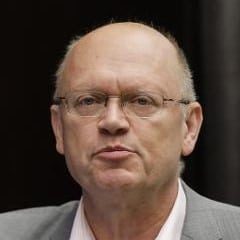
Speakers
Climate
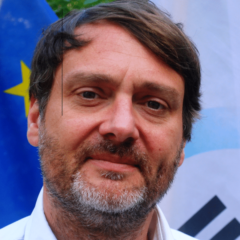
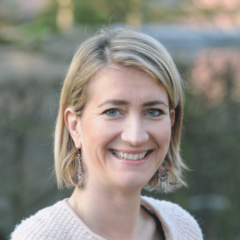
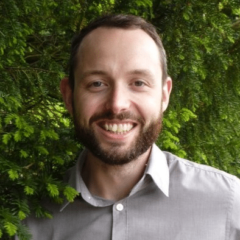


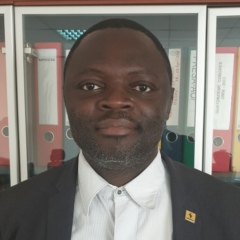

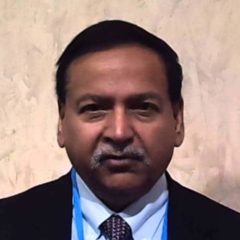



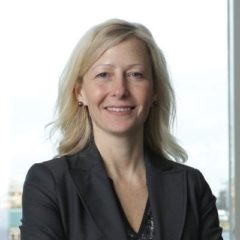
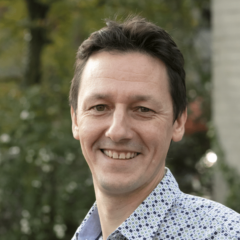
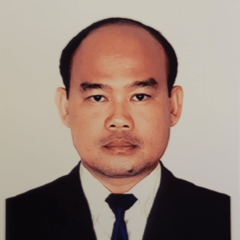
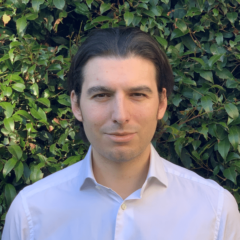
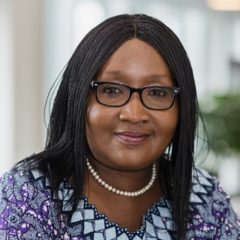
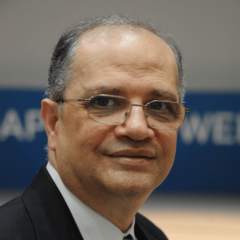
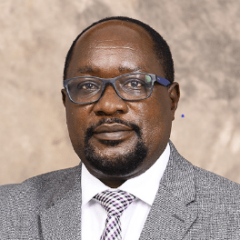


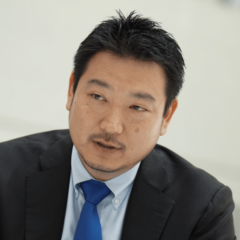




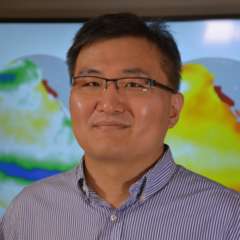
Thematic opening session
Accelerating climate change adaptation: a human, environmental, and economic imperative
Given the multiple benefits that climate adaptation actions can bring, accelerating climate change adaptation is becoming imperative.
The Adapt Now! report by the Global Commission on Adaptation confirms that the return on investments in improved climate resilience is very high. Global investments worth 1.8 trillion USD could even generate 7.1 trillion USD in total net benefits from 2020 to 2030, making the adoption of climate adaptation strategies a necessity from a purely economic point of view. By enhancing the resilience of society against future risks, climate adaptation strategies will also deliver significant social and environmental benefits next to these economic gains.
During the thematic opening session, a panel of experts and practitioners will discuss how to accelerate and upscale climate adaptation actions. At the same time, they will also review what role technological innovation can play in deploying adaptation measures on a massive scale.
Deep dive sessions
Climate change mitigation and adaptation technologies

Special Financing Window in Support of Innovation for Adaptation
The Climate Technology Centre and Network (CTCN) with the support of the United Nations Environment Programme (UNEP) has received 5 million USD from the Adaptation Fund to foster innovation in climate adaptation. The CTCN will implement 15 and 10 micro-grants projects for 5 years to enhance climate resilience and adapt to climate change in developing countries. Moreover, the programme will facilitate knowledge-sharing and the exchange of best practices to strengthen opportunities of South-South and triangular cooperation on innovation in climate adaptation.

Sector-oriented climate services
Just like the weather service brings a daily forecast enabling people to plan activities, climate services concern medium to long term projections of climate-related indicators. By providing tailored and understandable climate information, climate services can be fundamental to assist decision-making, be it for farmers with forecasts of drought, tendencies in temperature for urban planning or weather extremes for disaster management. In this deep dive, the need for climate services at various levels of decision-making will be highlighted and discussed by several renowned speakers.
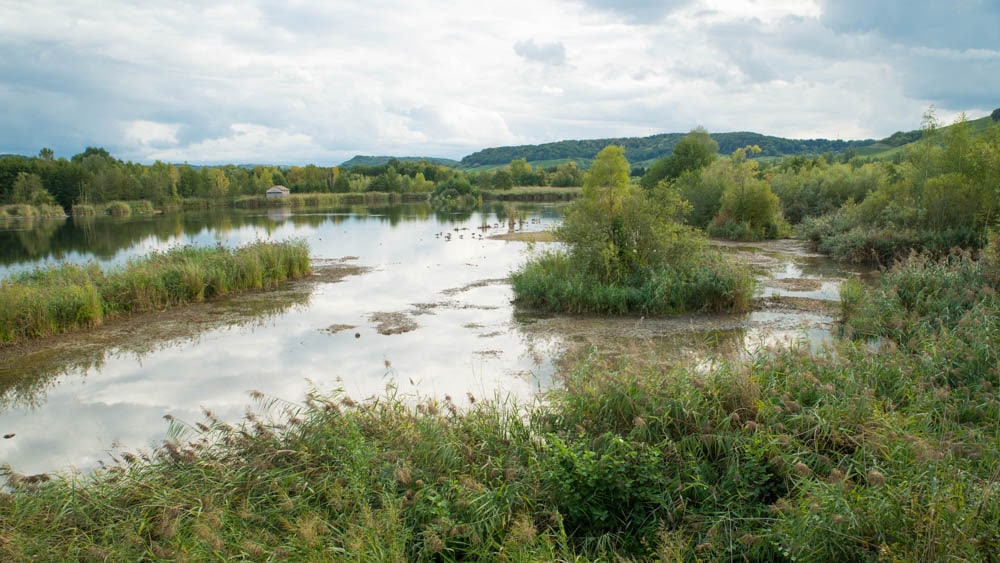
Innovative climate adaptation approaches
To focus on policy issues related to the development of innovative approaches for climate adaptation technologies, this deep dive will review the activities of the Technology Executive Committee (TEC) as the policy arm of the Technology Mechanism of UNFCCC (United Nations Framework Convention on Climate Change). During this deep dive, TEC will reach out to relevant stakeholders and identify further opportunities for collaboration to strengthen its policy role. TEC will then take conclusions to the SDG Technology Facilitation mechanism and the SDG Forum, held yearly in New York.
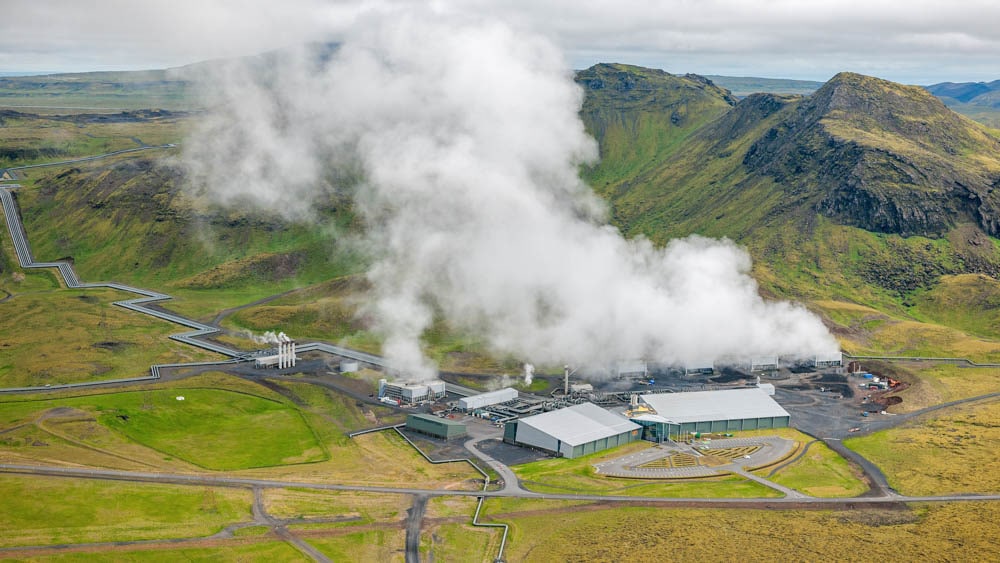
CO2 as a resource
The IPCC’s ambition to limit temperature increase to 2°C above pre-industrial levels not only requires the gradual reduction of CO2 emissions from industry, fuel burning and land use. CO2 capture and valorisation strategies need to be deployed as well. While Carbon Capture and Utilisation (CCU) pathways are a postponement of CO2 emissions, Carbon Capture and Storage (CCS) from industrial point sources is considered as feedstock supply. Direct Air Capture (DAC) would imply an upgrade from a pure CO2-emission-avoiding tool to a net-zero-emission tool in the battle against climate change.
Thematic coordinators
Climate




